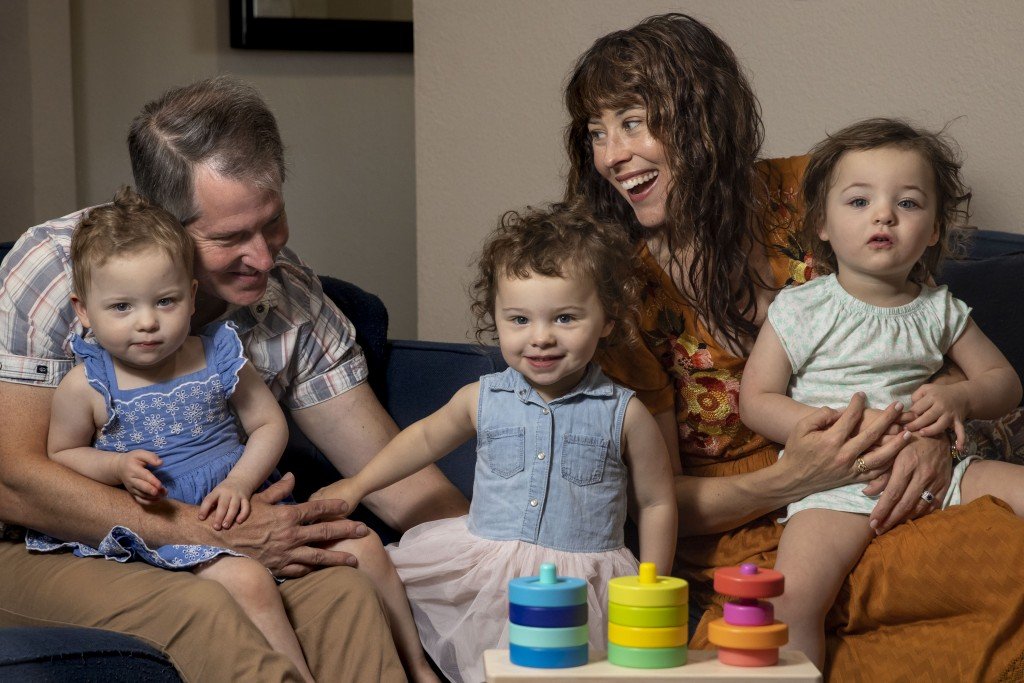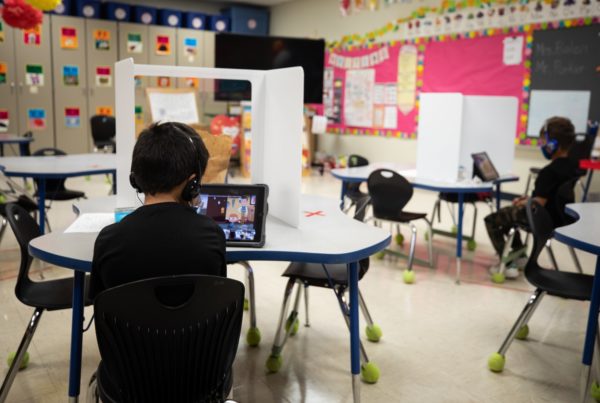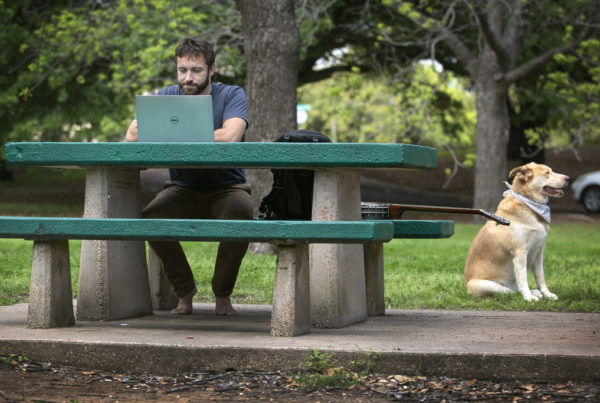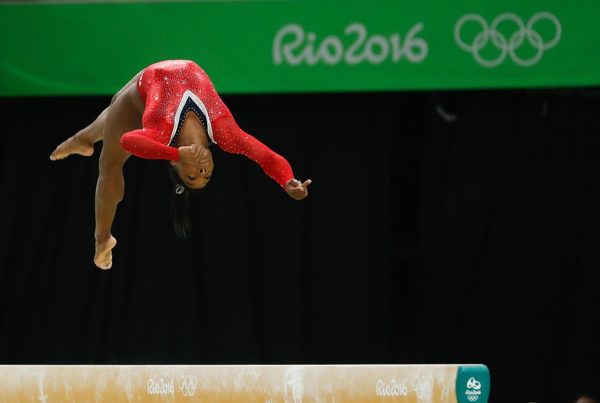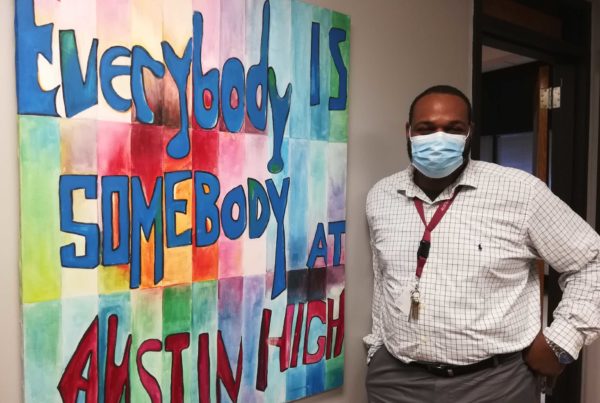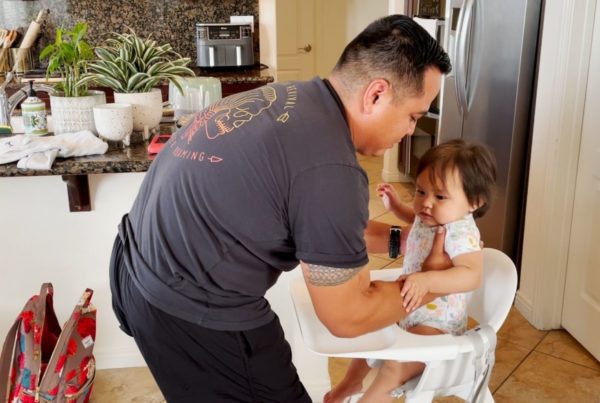Editor’s note: Reconnecting after a year of separation and loss is a work-in-progress. KERA and The Dallas Morning News are collaborating to document how the pandemic has changed the arts and culture scene in North Texas. The News’ Michael Granberry reports on how two actors turned to new careers after theaters shut down.
Allison Pistorius and Chris Hury are two of Dallas’ most gifted actors. So, it’s jarring to hear Pistorius say she hasn’t been on stage in a year and a half. Nor has Hury, who says he’s “going in a different direction” since being mostly unemployed since March of 2020.
That, of course, is when a global pandemic pressed the pause button on the world at large.
So, when they’re asked a single question — “How has the pandemic affected your lives?” — Pistorius responds with a lusty laugh, worthy of a farce by Molière.
“It’s such a big question,” she says. “There’s not a part of our lives that hasn’t been affected.”
The pandemic has done nothing less than throw their professional lives into disarray. It has taken away their health insurance. It has smacked them in the head with an existential crisis. It has, at times, stripped them of confidence.
Hury has been forced to put behind him such meaty roles as Cyrano in Cyrano de Bergerac and Jeffrey Skilling in Enron. Last spring, he was set to play the role of Flan in Six Degrees of Separation at Uptown Players, the part Donald Sutherland made famous in the film version.
The pandemic killed it.
Pistorius was to play the title role in Marie Antoinette at Amphibian Stage in Fort Worth. COVID shelved that one too.
Barely four months before the lockdown, she had been a tour de force in Michael Federico’s adaptation of Dracula at Theatre Three. Federico said then he wrote the role specifically for her.
Now, the couple are sharing in the most important roles of all. A playwright writing about the pandemic could not have picked a more engaging drama than the one happening daily in the couple’s Dallas-area home.
Raising Triplets, Losing Insurance
Austen, Birdie and Charlie were born on Nov. 12, 2018. They are healthy, happy triplets who were barely a year old when the pandemic hit. When the girls were born, their parents’ medical insurance emerged as a champion, a savior.
All three babies came into the world via a cesarean section, but all three required extended stays in intensive care. Birdie, the smallest, remained in ICU for two months.
The couple’s shared coverage, obtained through Actors’ Equity Association, paid for almost everything. As Hury said in a 2019 interview with The Dallas Morning News, “We didn’t pay a penny,” to which Pistorius added: “The bill for all of it was $24.”
But that was then, and this is now. Like actors all over America who have lashed out angrily at Actors’ Equity because of the hardline position it took in the wake of COVID — shutting down virtually all theatrical productions — Pistorius and Hury have felt the pain.
Actors’ Equity kept them from working but also saddled them with a crippling Catch-22: Because neither could pursue the art form they long ago embraced, each was forced to surrender their health insurance. And why?
They weren’t working enough to qualify. So, when it came to medical coverage for a family of five, they got canceled.


